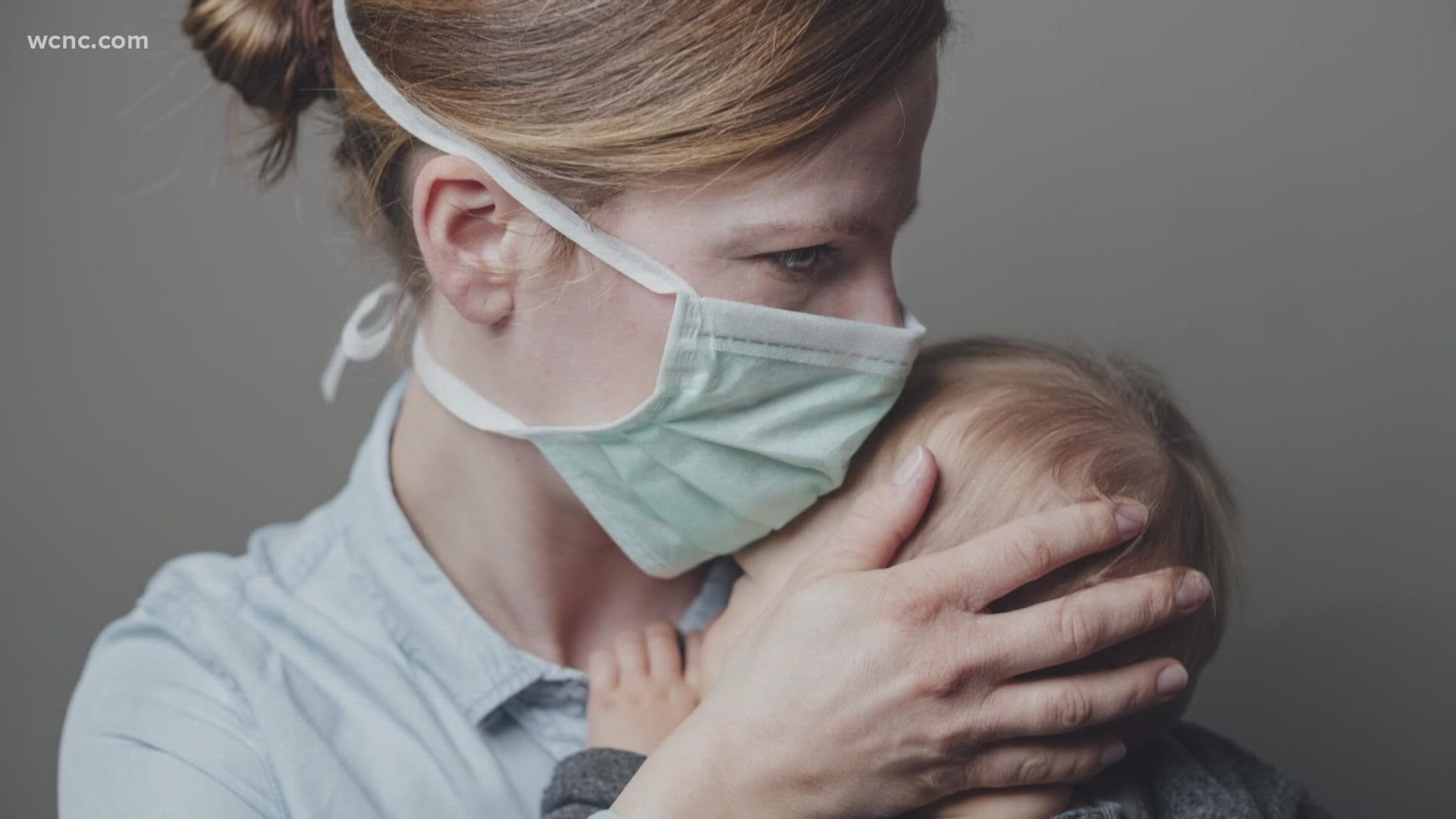CHARLOTTE, N.C. — Pfizer on Tuesday asked the U.S. to authorize extra-low doses of its COVID-19 vaccine for children under 5, potentially opening the way for the very youngest Americans to start receiving shots as early as March.
In an extraordinary move, the Food and Drug Administration had urged Pfizer and its partner BioNTech to apply earlier than the companies had planned.
If the FDA agrees, Pfizer shots containing just one-tenth of the dose given to adults could be dispensed to children as young as 6 months.
This young age group is the only population, outside of newborns, not yet eligible for a COVID-19 vaccine. In the United States, there are about 19 million children in this population.
“This is an exciting time,” Dr. Karla Robinson, a medical doctor and family physician, said. “This is the only population that has been left vulnerable to the effects of the COVID infection, and so this is an absolute breakthrough for our pediatric population.”
As the omicron variant of the coronavirus brought record case counts to North Carolina, the North Carolina Department of Health and Human Services (NCDHHS) reported COVID-19 infections in 12,128 children ages as old as 4 years old. Those cases are nearly six times the number of cases that population saw last August as the delta variant dominated.
“The transmissibility of the omicron variant in particular has really shown huge spikes in infections in children, as well as hospitalizations in children,” Robinson said. “So we want to do the very best that we can to protect each and every person who’s eligible, and one way to do that is through the vaccine.”
Even though the Pfizer vaccine for children ages 5 to 11 has been available since November, only 25% of children in that age group in North Carolina have received at least one dose, according to NCDHHS data. Across the country, just 20% of kids ages 5 to 11 and just over half of 12- to 17-year-olds were fully vaccinated, according to data published by the American Academy of Pediatrics last week. Nearly three-quarters of adults are fully vaccinated nationwide.
Robinson said she knows many parents have questions or hesitations about the vaccine and encourages them to trust in the checks and balances of the approval process.
"This is certainly something that we have no doubts about recommending at this time, and that's what the research is about,” Robinson said. “That's why we wait for data, and that's why it's taken some time for us to actually have the opportunity to introduce it to the youngest population because we did have to wait for that safety data."
An open question is how many shots those youngsters will need. Pfizer is testing three shots after two of the extra-low doses turned out to be strong enough for babies but not for preschoolers, and the final data from the study isn’t expected until late March.
That means the FDA may consider whether to authorize two shots for now, with potentially a third shot being cleared later if the study supports it.
The agency’s decision could come within weeks, but that isn’t the only hurdle. The Centers for Disease Control and Prevention also has to sign off.
Dr. Mark McClellan, a Duke University health policy expert and former FDA commissioner, said he expects the FDA to thoroughly vet the Pfizer data that is presented.
"It includes data on hundreds of kids who have been now followed for a long time,” McClellan said. “It integrates data from around the country and around the world from kids more generally with covid vaccines. So it's very good from a safety standpoint, especially at these low doses."
For kids under 5, Pfizer’s study is giving participants two shots three weeks apart, followed by a third dose at least two months later. The company is testing whether the youngsters produce antibody levels similar to those known to protect teens and young adults.
In December, Pfizer announced that children under 2 looked to be protected but that the antibody response was too low in 2- to 4-year-olds. It's not clear why, but one possibility is that the extra-low dose was a little too low for the preschoolers.
Since the preliminary results showed the shots were safe, Pfizer added a third dose to the testing in hopes of improving protection.
Robinson said this would be one more vaccine she would recommend for some of her youngest patients.
"Just as you would want to protect your young child from any other childhood disease and you go through the series of vaccinations,” Robinson said. "We absolutely encourage each parent to do the same for the COVID vaccine."
The Biden administration has been trying to speed the authorization of COVID-19 shots for children, contending vaccinations are critical for opening schools and day care centers and keeping them open, and for freeing up parents from child care duties so they can go back to work.
The Associated Press contributed to this report
Contact Kendall Morris at kmorris2@wcnc.com and follow her on Facebook, Twitter and Instagram.

